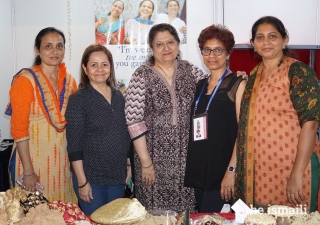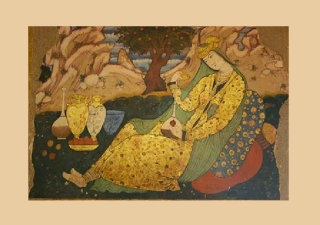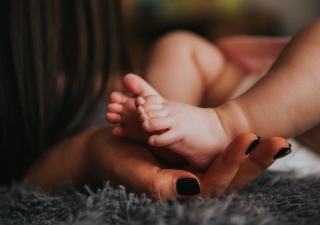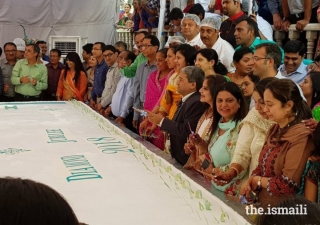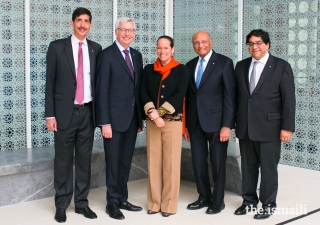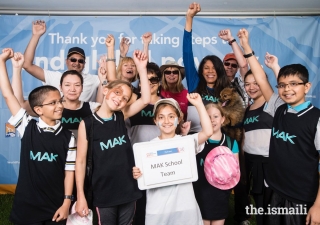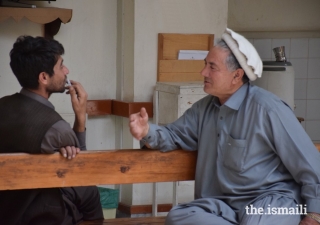News
Latest news and updates in India
On the occasion of International Women's Day, we celebrate the work of the Ismailia Helping Society (IHS) in India. Established in 1936, under the guidance of Mawlana Sultan Mahomed Shah, IHS was established to promote the economic advancement of women in the Jamat. Over 80 years later, IHS continues to empower women who leverage their traditional skills in art, crafts, and beadwork to create lifestyle products.
On the occasion of International Women’s Day, 8 March 2020, we celebrate the achievements of women — historical and contemporary — who have inspired and continue to inspire people of all faiths, backgrounds, and fields of endeavour.
Promoting inclusivity and accessibility, Ismaili Centres and Jamatkhanas around the world are opening their doors to dialogue and conversation – a cornerstone to pluralism and a long-standing tradition of our faith.
“Women are twice as likely as men to experience depression and anxiety, yet three times more likely to experience barriers to accessing mental healthcare,” explained Dr Simone Vigod during a session entitled Healthy Moms, Healthy Families – Breaking Down Barriers to Maternal Mental Healthcare at the Ismaili Centre Toronto in early February.
For nearly two decades, the United Bakers Co-operative Society Limited has been aggregating the interests and aspirations of local Jamati bakeries in Hyderabad. From centralised procurement to training and development, the alliance’s story illustrates that bonds of trust and collaboration can catalyse economic development. We take a look at the recipe behind their sweet story of success.
The University of Central Asia (UCA) and the University of Cambridge came together to sign historic partnership agreements at ceremonies in Cambridge and London on 25 and 26 February 2020. The events in the UK were attended by Princess Zahra, along with senior leaders from UCA and the University of Cambridge.
From organising skills enhancement camps to leading school fundraising teams, Ismaili youth from around the world have taken on leadership roles in the movement to alleviate poverty, through economic empowerment and other measures.
The percentage of elderly people in Pakistan is expected to double to 12 percent by 2050, increasing the number of senior citizens to 40 million. This demographic transition impacts citizens of all ages. Therefore, it is important that senior citizens take the necessary steps to ensure they have a good quality of life financially, even after retirement.
Although we now live in an an age of automation, it’s important to remember that machines can’t do everything. Technical efforts must be balanced with social and emotional skills. Part two of our Future Skills article highlights the importance of technical, cognitive, and soft skills in preparing for the future.
In December 2019, Global Encounters (GE) Expedition brought together young Ismailis from 13 countries to the rural areas of Southern Saurashtra in Gujarat to engage with the local Jamat and study the work of the Aga Khan Development Network (AKDN). The impact of Expedition on its participants is well known, but the impact that Expedition has on the Jamat in Southern Saurashtra is equally profound.
The World Economic Forum predicts that millions of jobs will be lost in the coming years as artificial intelligence, robotics, nanotechnology, and other socio-economic factors replace the need for human workers. How can we begin to prepare for a future that will no doubt be more mobile, autonomous, and machine-driven than today?
Often, we think of balance as a scale: having equal weights on either side. In reality, balance may not be what it seems. Instead, it can be thought of as a pendulum. It’s about finding what’s right for you. There isn’t a one size fits all, especially when it comes to wealth.

